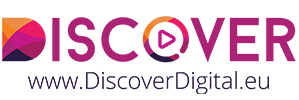 Adult participation in learning is held in high priority to EU policy making, it is a key objective of the EU 2020 education and training strategy. Participation is not evenly distributed across society; it is influenced by social class, employment status, age and prior learning. Low-qualified, low-skilled adults are underrepresented and difficult to integrate, experiencing the cumulative effects of situational, institutional and dispositional barriers to learning, such as low self-esteem, negative peer attitudes, learning difficulties and cost.
Adult participation in learning is held in high priority to EU policy making, it is a key objective of the EU 2020 education and training strategy. Participation is not evenly distributed across society; it is influenced by social class, employment status, age and prior learning. Low-qualified, low-skilled adults are underrepresented and difficult to integrate, experiencing the cumulative effects of situational, institutional and dispositional barriers to learning, such as low self-esteem, negative peer attitudes, learning difficulties and cost.
Digital learning technologies have the power to widen access and transform the learning experience for these groups, overcoming the lack of motivation by replacing impersonal, hierarchical classroom scenarios with flexible, personalised learning.
In an under-resourced sector, digital learning is more accessible than ever: cloud based digital tools are free or highly affordable and 80% of Europeans now own smart phones obviating the need for expensive equipment. Yet, while schools and HE have benefitted from investment in digital pedagogies, community educators have not. Overall, 52% of UK charities lack basic digital skills. In our recent survey, 90% of community education leaders were unaware of the benefits of digital learning tools. More worryingly, 100% of respondents said their organization had experienced practical or attitudinal problems regarding the introduction of digital tools. To remedy this situation, DISCOVER will equip adult educators with the knowledge and skills to find, evaluate, adapt and use digital learning resources to better meet the learning needs of the adults they serve.
Digital education brings enormous opportunities to improve the learning outcomes of low skilled and unemployed adults in skills development programmes. DISCOVER will motivate and equip adult educators with the knowledge and skills to overcome the barriers and better integrate digital teaching and learning for the benefit of adult learners.
The overall goal of DISCOVER, therefore, is to provide community-based adult educators with high quality training on effective digital teaching techniques so that they may increase their use of digital learning tools in their everyday work and drive improvements in the quality and outcomes of their education programmes.
In order to do this, we will:
Develop and disseminate a Guide to Digital and Mobile Teaching (IO1) to educate the educators on the strategic importance of digital pedagogy and the competences required of them as 21st century educators.
Create and share a practical, interactive Toolkit (IO2), presenting the most valuable digital and mobile tools and the innovative ways in which they overcome learning barriers among low-skilled adults.
Develop and promote an online platform (IO3) to consolidate educators’ new digital competences, enabling them to practice in a supportive environment and receive peer support.
The immediate result of the project will be to improve access to high quality digital pedagogy training Adult Education teachers and trainers in community-based organisations.

